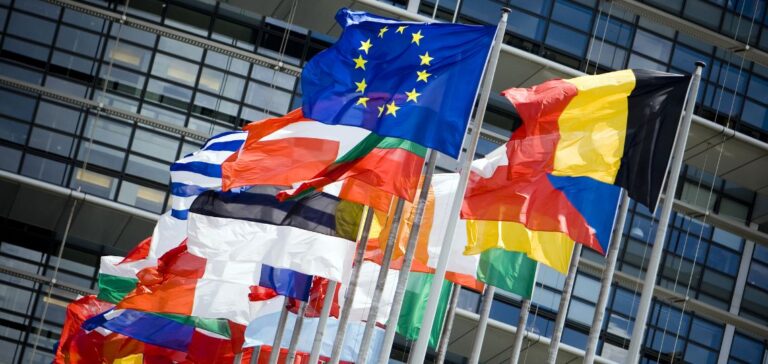The European Energy Ministers have begun final discussions in Brussels to finalize a cap on the wholesale price of gas, indicating a rapprochement of positions after a month of bitter discussions.
Faced with high energy prices at the beginning of winter, “households and businesses are waiting for a decision, I see no reason not to find an agreement today” (Monday), assured on his arrival the Czech minister Jozef Sikela, whose country holds the rotating presidency of the EU.
Anxious to display a united front, the 27 Member States initially considered it preferable to seek unanimity, even if, on a legal basis, the text can be adopted by a qualified majority of States. From now on, this is no longer excluded.
“I am aiming for an agreement by tonight, one way to achieve this is to use qualified majority voting,” Sikela acknowledged.
“This would obviously be an undesirable outcome. If this is the case, we will have to live with it,” lamented German Minister Robert Habeck, calling for “no losers.
The ministers of the EU-27 had already agreed on December 13 on some of the details of the mechanism, which would apply to futures contracts on the gas markets, but they still need to agree on the price at which the cap will be triggered.
While the positions of the States ranged between 160 and 220 euros/MWh, the Czech Presidency proposed a compromise of 188 euros/MWH, said the French Minister for Energy Transition Agnès Pannier-Runacher, noting that Paris defended a range of 200 to 260 euros.
“There are three objectives: to have a gas price that is acceptable for the proper functioning of the economy, while ensuring that we do not block our supplies and ensure the stability of financial markets,” she recalled.
“188 euros / MWh would send a strong signal to the markets,” said his Greek counterpart Konstantinos Skrekas.
The Commission had initially proposed to cap monthly contracts on the TTF reference market if they exceeded 275 euros/MWh for two weeks, among other conditions, factors that were never met, even at the height of the price surge last August.
Several countries (Spain, Poland, Greece, Italy, etc.) had called for a clear relaxation of the activation conditions.
On the contrary, other states (Germany, the Netherlands, Austria…) were reluctant to intervene and demanded drastic “safeguards” to prevent a ceiling from threatening European supplies.
The risk is that liquefied natural gas (LNG) suppliers will move away from Europe to Asian customers who pay more attractive prices for their gas.
“On paper, this risk does not exist,” said Ms. Pannier-Runacher, as the EU-27 have agreed to activate the cap only when the price is significantly higher than the average international LNG price and to provide for automatic deactivation in case of unforeseen disruptions.






















